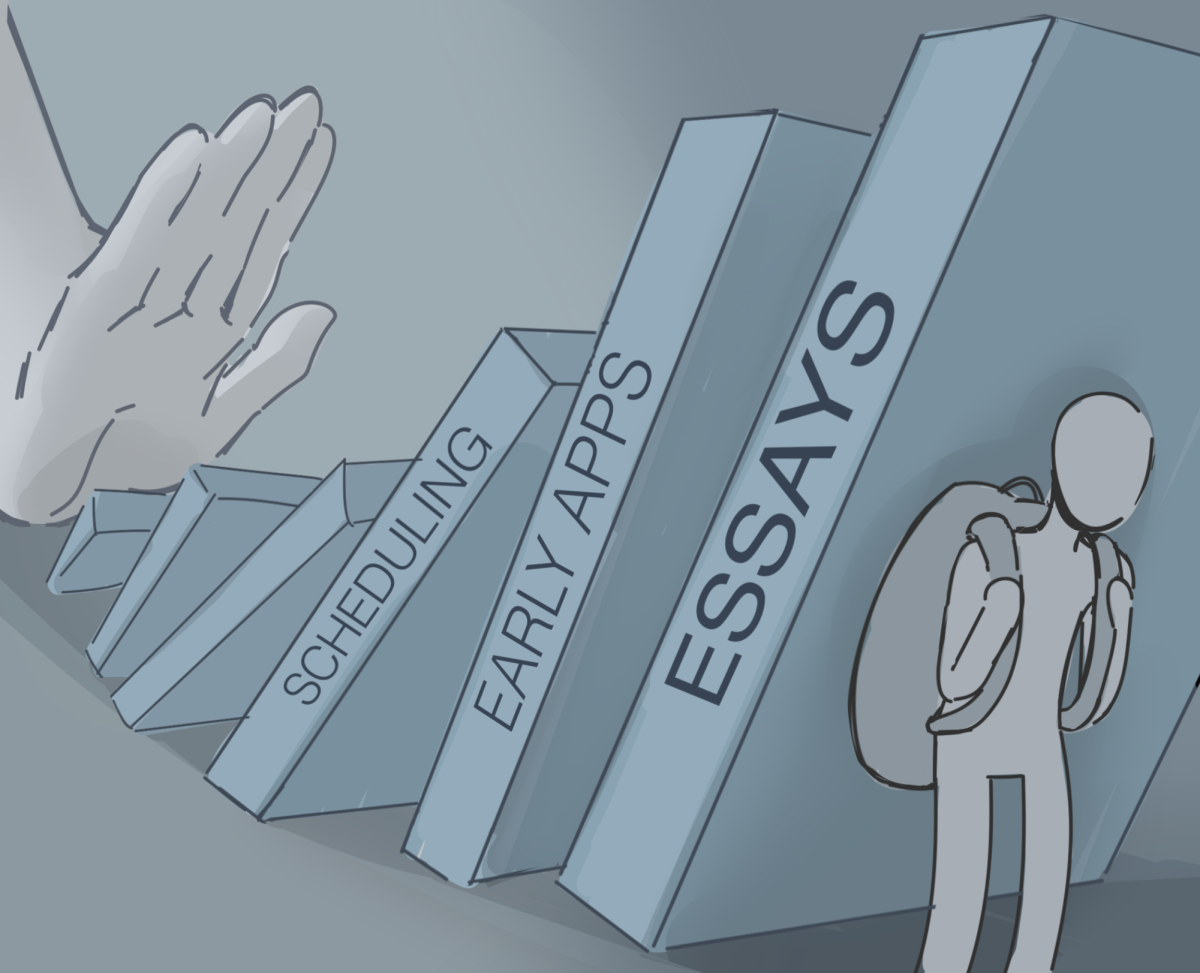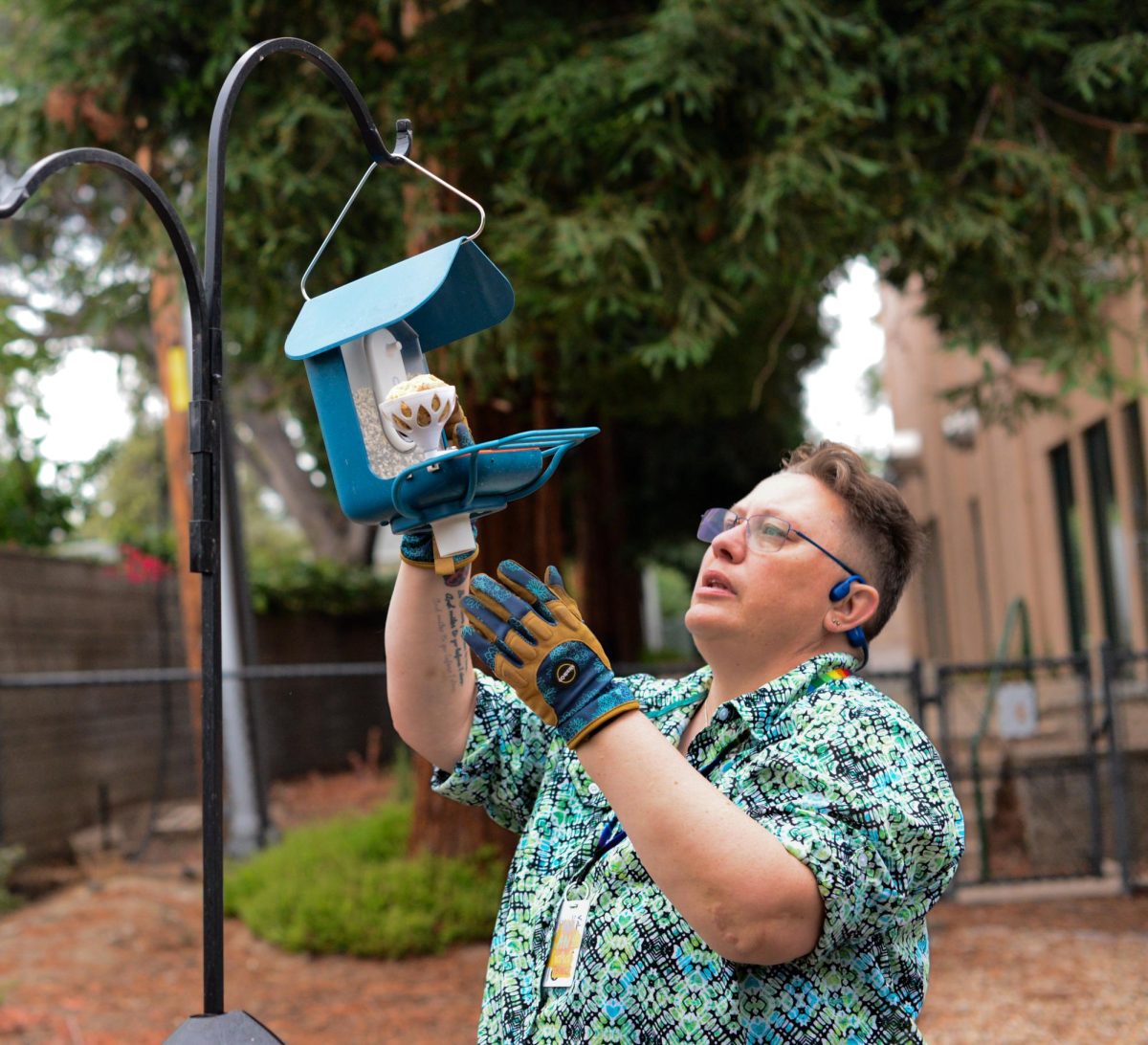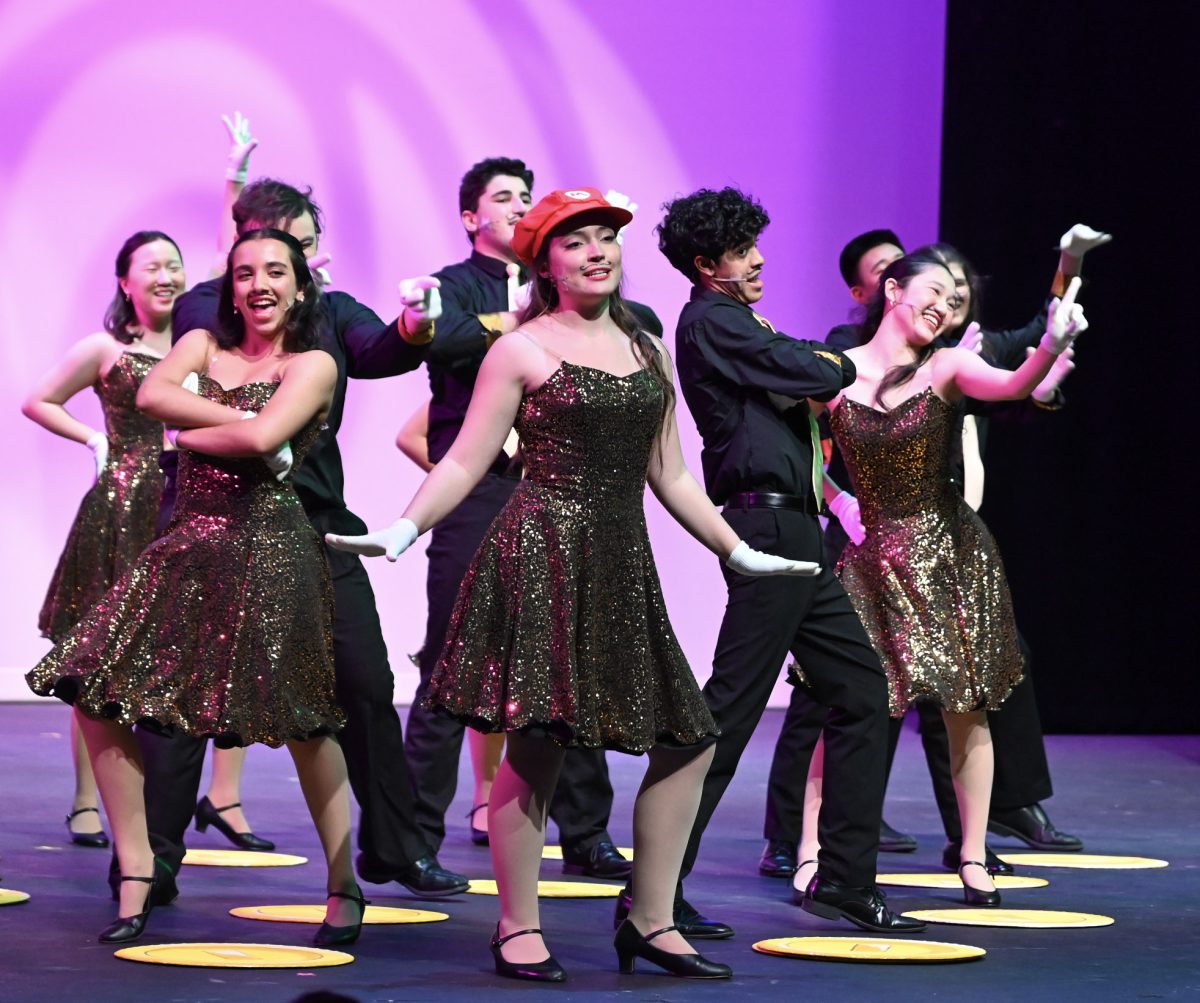During the average week, we spend around an hour and a half sitting in mandatory school and class assemblies, often at the expense of office hours and the short chunks of free time we have during the week. The limited time in each school day is a precious commodity, and assemblies and meetings too often disregard it. Although these gatherings serve important purposes and address our community needs, we need to work to restructure these events to be more meaningful to students without sacrificing content.
Two weeks ago, juniors attended a LIFE meeting while sophomores and seniors spent time with their Eagle Buddies. That meeting discussed the impacts of unhealthy coping mechanisms, a crucial topic for many high schoolers, like many of the subjects LIFE assemblies tackle: mental health, sleep, time management. But it excised a portion of our lunches, normally a time to breathe and relax, for a mandatory meeting, making it difficult to be present. Eventually, we start to drown out the cookie-cutter suggestions that we always hear — sleep more, stop participating in so many extracurriculars, be productive and stay off social media.
LIFE meetings should move beyond reminders toward actionable advice. For instance, LIFE speaker Dino Ambrosi from last year shared his personal experience with screentime addiction and offered as a solution concrete tools like apps ClearSpace and ScreenZen, which many students downloaded and began using that day. His information wasn’t tuned out. Instead he showed that, as listeners, we want to hear information through the lens of easily implementable actions: solution-oriented rhetoric is more appealing and helpful to students.
School meetings also offer an important space for our community to learn about new initiatives. But few schools mandate repeated meetings that have all students and faculty in attendance. And even fewer hold them every week. At the same time, school meetings tend to run long and impinge upon office hours, once again siphoning away valuable free time from the school day.
It should be the responsibility of the students to keep track of the initiatives that they want to participate in. What actually benefits from being said out loud? And what can be written in an email or posted on Schoology? Because most clubs or programs announce initiatives by mailing list, filtering these announcements allows more attention to fall on news that can’t be distributed online.
New, stricter ASB guidelines for in-person announcements are a step in the right direction, but the vast majority of club announcements still don’t need to be said aloud: many of those reminders are reposted after school meetings on Schoology anyway, which students need to plan their schedules regardless. It’s this repetition that makes school meetings run long.
ReCreate Reading, too, struggles to live up to its intent to foster genuine interest in reading. Every year many students openly admit to not finishing their books, and discussions often feel like halfhearted affairs, leaving students questioning why they must participate in such an activity. The structure and focal points of ReCreate reading can be simplified to refocus on its core goal. Fewer choices of books, for instance, would promote deeper conversations with larger groups of students.
The solution to these issues isn’t to eliminate schoolwide gatherings entirely. Rather, we should approach them with a critical eye. What can be shortened? What activities and suggestions truly and practically serve students?
In pruning mandatory gatherings, however, we must not fill empty time with more scheduled activities. Leave it free. There is profound value in unstructured time. In moments where students are not racing to the next obligation, we find time to chat with friends, catch up on work and simply recharge. The LIFE acronym itself reminds us to live with intent, focus and enthusiasm, tenets that every assembly should work to promote. But those ideals are impossible to uphold when students have no time to breathe.
While students have a say in the agendas of many assemblies, intentional scheduling only works when the students in attendance listen and engage actively. Consider the higher purpose of gatherings. Participate meaningfully. Not doing so wastes the time of organizers, speakers and students.
Be intentional about how we structure these gatherings, and how we receive them. Remember that less is more. That principle can help us ensure that every assembly enriches our school community.


















![“[Building nerf blasters] became this outlet of creativity for me that hasn't been matched by anything else. The process [of] making a build complete to your desire is such a painstakingly difficult process, but I've had to learn from [the skills needed from] soldering to proper painting. There's so many different options for everything, if you think about it, it exists. The best part is [that] if it doesn't exist, you can build it yourself," Ishaan Parate said.](https://harkeraquila.com/wp-content/uploads/2022/08/DSC_8149-900x604.jpg)




![“When I came into high school, I was ready to be a follower. But DECA was a game changer for me. It helped me overcome my fear of public speaking, and it's played such a major role in who I've become today. To be able to successfully lead a chapter of 150 students, an officer team and be one of the upperclassmen I once really admired is something I'm [really] proud of,” Anvitha Tummala ('21) said.](https://harkeraquila.com/wp-content/uploads/2021/07/Screen-Shot-2021-07-25-at-9.50.05-AM-900x594.png)







![“I think getting up in the morning and having a sense of purpose [is exciting]. I think without a certain amount of drive, life is kind of obsolete and mundane, and I think having that every single day is what makes each day unique and kind of makes life exciting,” Neymika Jain (12) said.](https://harkeraquila.com/wp-content/uploads/2017/06/Screen-Shot-2017-06-03-at-4.54.16-PM.png)








![“My slogan is ‘slow feet, don’t eat, and I’m hungry.’ You need to run fast to get where you are–you aren't going to get those championships if you aren't fast,” Angel Cervantes (12) said. “I want to do well in school on my tests and in track and win championships for my team. I live by that, [and] I can do that anywhere: in the classroom or on the field.”](https://harkeraquila.com/wp-content/uploads/2018/06/DSC5146-900x601.jpg)
![“[Volleyball has] taught me how to fall correctly, and another thing it taught is that you don’t have to be the best at something to be good at it. If you just hit the ball in a smart way, then it still scores points and you’re good at it. You could be a background player and still make a much bigger impact on the team than you would think,” Anya Gert (’20) said.](https://harkeraquila.com/wp-content/uploads/2020/06/AnnaGert_JinTuan_HoHPhotoEdited-600x900.jpeg)

![“I'm not nearly there yet, but [my confidence has] definitely been getting better since I was pretty shy and timid coming into Harker my freshman year. I know that there's a lot of people that are really confident in what they do, and I really admire them. Everyone's so driven and that has really pushed me to kind of try to find my own place in high school and be more confident,” Alyssa Huang (’20) said.](https://harkeraquila.com/wp-content/uploads/2020/06/AlyssaHuang_EmilyChen_HoHPhoto-900x749.jpeg)






















